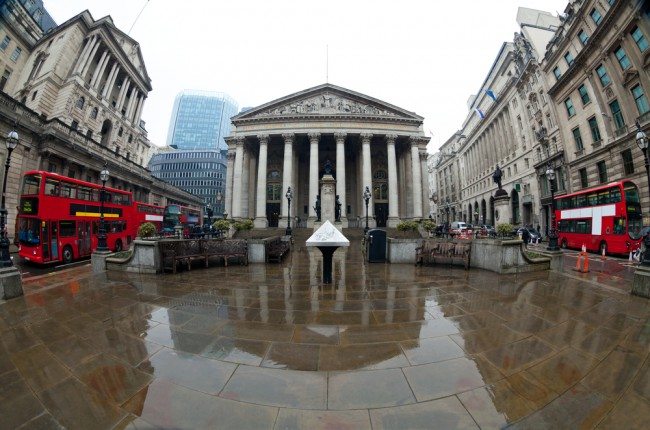The Bank of England returns to the spotlight this week when it unveils its latest economic forecasts against the backdrop of record low inflation and the prospect of deep government spending cuts, reports The Guardian.
The central bank is almost certain to leave interest rates unchanged at 0.5 per cent when it announces its monthly decision on Monday, a few days later than usual to avoid the general election. City traders will be hanging on Bank governor Mark Carney’s every word at Wednesday’s inflation report, the first significant insight into policymakers’ thinking after six weeks of election purdah, in which officials were barred from speaking in public on the economy.
The inflation report will be accompanied by the publication of Carney’s latest explanatory letter to the chancellor, George Osborne, after inflation slumped to zero, way below the 2 per cent government target.
Economists say there is a high chance that Carney will use the latest forecasts for growth and inflation to warn markets they are too relaxed about the timing of an interest rate hike and that it will come sooner than traders are pricing in. That would echo minutes to its April monetary policy committee (MPC) meeting published mid-month, the only real news from the Bank in recent weeks.
“April’s MPC minutes presented UK markets with a hawkish surprise thanks to a couple of references to the ‘exceptional’ flatness of the yield curve,” said Philip Shaw, at Investec, referring to the interest rates path that markets have been implying.
If policymakers are of the same mindset now, they may want to send a message to markets and could conclude that inflation will overshoot the Bank’s target in two to three years’ time, Shaw notes.
The thinktank Capital Economics agrees, saying that the Bank could revise up its inflation forecasts.
“This could be interpreted as a signal that an interest rate rise could come quicker than financial markets expect. That said, markets have already adjusted their expectations quite significantly in the last week or two, with the date of the first rate hike moving forward from next October to next June,” they wrote in a preview note.
“In any case, the key message that the MPC will want to convey is that when interest rates do start to rise, they will do so only slowly.”
There are also warnings that the Conservatives’ shock majority at the election has muddied the outlook for interest rates. The prospect of a further five years of austerity might mean borrowing costs have to stay low for longer. Interest rates have already been at a record low for six years.
“Based on the current budget projections, the UK will face the mother of all fiscal tightenings in about a year’s time. These point to almost 2 per cent of GDP of fiscal tightening in 2016-17 – far more severe than anything that we have seen over the past five years,” said Alan Clarke, head of European fixed income strategy at Scotiabank in London.
“If this comes to pass, it is likely to dent growth, hurt hiring and investment. Something has to give. If the Bank of England hasn’t hiked Bank rate by mid-2016, it might find it hard to do so for yet another year or so given that backdrop.”
After the latest official GDP figures suggested Britain’s growth rate halved in the first quarter of this year – to 0.3 per cent – analysts are waiting to see if the Bank will view that as a mere blip or the sign of a more pervasive slowdown.
“We suspect that the Bank of England will take the view that the recent slowdown in UK economic activity has been significantly influenced by increased business and (to a lesser extent) consumer caution ahead of the general election,” said Howard Archer, economist at the consultancy IHS Global Insight.
“The bank will likely assume that growth will pick up markedly in the second half of the year.”
Official figures this week will also provide some clues to the economic outlook. Manufacturing data is published on Tuesday and labour market numbers are due on Wednesday.


